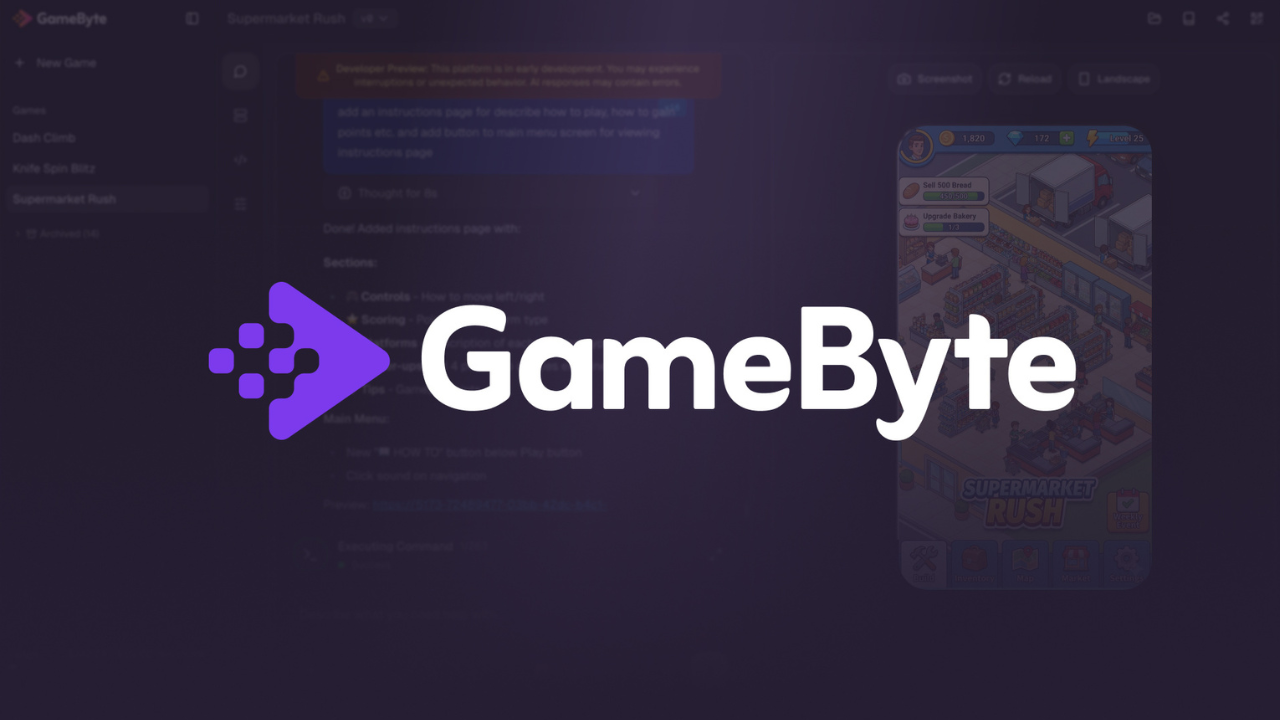2025 is on our doorstep, and the games industry continues to evolve at an unprecedented pace, driven by technological innovation, shifting player behaviors, and emerging markets.
From the rise of AI-powered game development tools to the growing dominance of subscription-based services, the year ahead promises transformative trends that will reshape how games are created, distributed, and experienced.
We asked industry experts to share their insights and predictions for the coming year, uncovering the opportunities and challenges that lie ahead.
Here are the 2025 predictions for the games industry
“In 2025, mobile games will double down on brand marketing to lower the cost of customer acquisition. Brand marketing in mobile gaming is set to accelerate, addressing a gap many publishers have overlooked. Combined with paid acquisition, it can significantly reduce customer acquisition costs (CAC), especially as the ad market grows more saturated and players value brand reputation more.
Social proof will build trust, while creative campaigns drive engagement. Partnerships will play a big role here, as publishers look to associate themselves with both established brands and influencers who are popular with the target audience.”
Jop Habraken, VP of Products at Almedia

“Mobile game distribution will continue to change. Google and Apple are being forced to open up at a rapid pace particularly in the UK, US and Japan. Pressure on them will increase dramatically in 2025, especially from the government level.”
Paulo Trezentos, CEO & Co-Founder, Aptoide

“As AI develops, it can make games and the gaming industry more personalized. in what can be done in the games. Production times will shorten.”
Alvaro Pinto, COO & Co-Founder, Aptoide

“2024 has been an incredible year for bringing authentic digital likenesses to games. Games like Justice League: Kill The Suicide Squad saw phenomenal facial animations, and I expect to see the same high-fidelity facial performances in next year’s releases: Death Stranding 2 and GTA VI.
As the industry continues to advance in this area, we need robust libraries and catalogs of facial data provided by actors who are fairly compensated, both points Clear Angle Studios is set to support in 2025.”
Dominic Ridley, Director, Clear Angle Studios

“The theme of this year has been democratized distribution, and I predict the theme for next year will be its continued evolution. Leveraging the new distribution channels that have emerged is now a viable option for developers looking to build lasting games businesses, and I think we’ll see that trend continue to evolve with further developments, especially in webshops and other integrated cross-platform tooling.
Of course, that needs to be supported by capable backend tech, too. This year, more studios have woken up to the realization that they no longer need to build this themselves and that equal, if not better, tooling already exists off-the-shelf. That looks set to be a trend that will continue into 2025 and beyond.”
Teemu Haila, Chief Product Officer, Metaplay

“My prediction for 2025 is that third-party app stores will offer players more choices and give developers new distribution options. However, long-running franchises and top earners from the past decade will remain dominant in the revenues of both first and third-party app stores.”
Christian Lövstedt, CEO, Midjiwan

“The adoption of generative AI will transform game development workflows, from asset creation to implementing innovative game features. AI will not only boost productivity but also provide valuable business insights and create unique user experiences, as exemplified by companies like Bitmagic and AIpeople.”
Ivan Trancik, Founder and CEO, SuperScale

“Rewarded gaming as a category will continue to grow, but the market is starting to get saturated. There are over a hundred rewards apps, with only a few being fully-fledged products from sizable companies. Next year, I expect both consolidation and a number of rewards apps to hit the rocks.
There’s been a lot of investment in D2C stores this year, but expectations at the moment are too large to be met in 2025. They will continue to be a focus for publishers and whale-driven games. D2C drives margin more than revenue, so I do not expect a large return to top line growth. With many of the largest players already serving successful D2C offerings, returns for Web Shop opportunities could fall short of expectations.
Acquisitions in the mobile gaming space will continue, leading to a more consolidated market. Mobile gaming profits continue to concentrate amongst bigger publishers, which is becoming an increasingly tough nut for smaller players to crack. Companies with healthier profits will have an opportunity to lift up teams that are doing great work and begin to scale.
With ongoing changes in privacy regulations, user targeting could take another hit in 2025, sustaining UA and IAA monetization headwinds. While the entire market would be affected, my eye is on AppLovin, especially with their recent stock surge. My prediction is that AppLovin will take a hit from Apple and Google next year. Even without a massive crackdown or outright ban, tighter privacy controls are still growing, and this is who it’s going to hit the most.”
Ben Cousens, COO, ZBD

“2025 will be the year when the mobile games industry recognizes that UA and player retention should be looked at holistically rather than in siloed teams and tasks. There’s still strong, untapped potential in supporting the player lifecycle all the way from acquisition to onboarding, enjoying the game, and sustainably extending their customer lifetime through well-designed, data-driven, and (semi-) automated LiveOps activities.
Understanding the compound effect of keeping players engaged in your game longer by personalizing their experience and utilizing sophisticated machine learning for effective UA and retention optimization will be a key factor in achieving market differentiation in 2025.”
Claudia Heiling, Co-Founder & COO, Golden Whale Productions






